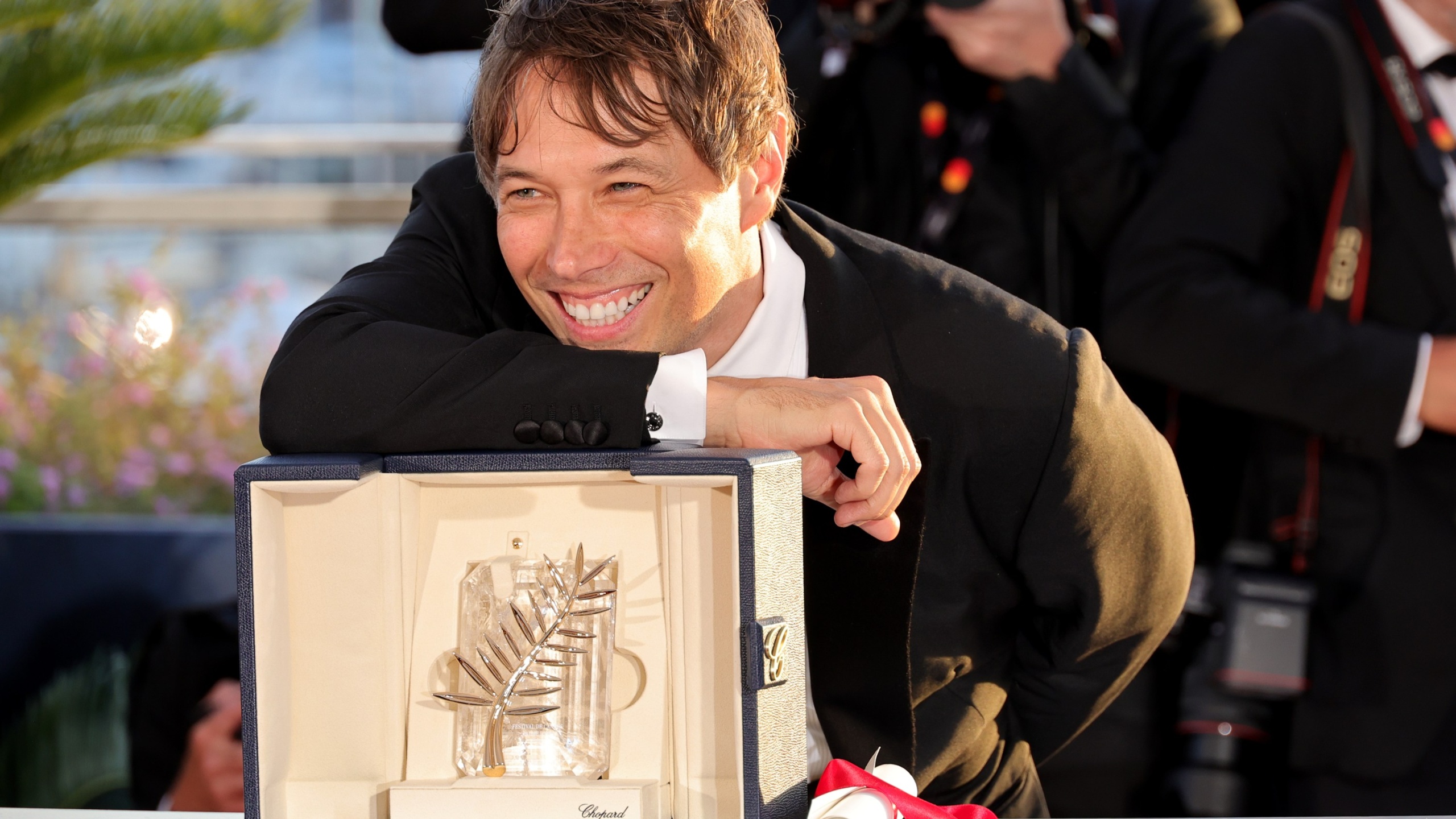Cannes awards have become hugely influential in subsequent awards races, especially the Oscars. The top honor, the Palme d’Or, confers prestige and a stamp of approval — this year from the Competition jury led by multi hyphenate Greta Gerwig — that awards voters take seriously.
Palme winners “Parasite,” “Triangle of Sadness,” and “Anatomy of a Fall” were all Best Picture Oscar contenders and won Oscars. And they were all picked up by specialty distributor Neon before they won their Cannes prize. Neon did not break its streak. It acquired two eventual prize-winners before the closing ceremony: Sean Baker’s Palme d’Or winner “Anora,” the first American film to win the prize since Terence Malick’s “Tree of Life” in 2011, and Iranian dissident filmmaker Mohammad Rasoulof’s “The Seed of the Sacred Fig,” which took home a special award.
Thus “Anora,” from veteran indie filmmaker Baker (Cannes entry “The Florida Project”), who delivered an entertaining romance between a sex worker (breakout Mikey Madison) and the son of a Russian oligarch (Mark Eydelshteyn) that delighted critics and audiences alike (IndieWire’s review here), gets a huge boost heading into fall festivals and awards season. At the jury press conference, Gerwig cited the film’s heartfelt emotion: “We were invited to be on a journey; it was heart-forward in terms of choosing.”
What will become of Rasoulof’s angry family tragedy “The Seed of the Sacred Fig”? Given the eight-year-prison sentence that the filmmaker fled when he escaped to Cannes, Iran is not going to submit the film for Oscars. Another critical hit, Indian director Payal Kapadia’s contemporary portrait of three Mumbai women, “All We Imagine as Light,” took home the runner-up prize, the Grand Prix. But will India submit the feminist drama? Another question.

France, which often picks the wrong horse in the Oscar race (see “Taste of Things” vs. “Anatomy of a Fall”), could submit Jacques Audiard’s popular jury prize-winner, musical “Emilia Pérez,” which was filmed in Mexico in Spanish with a French crew, and acquired by Netflix in a fierce bidding war. In a surprise vote for Best Actress, the jury awarded the “Emilia Pérez” ensemble of women: Americans Zoe Saldaña and Selena Gomez, Spain’s Karla Sofía Gascón, and Mexican Adriana Paz. “Women together — that’s something we wanted to honor when we made this award,” said Gerwig. “Each of them is a standout, but together transcendent.”
The Best Actor win for Jesse Plemons continues to elevate him from go-to character actor (Oscar-nominated for “The Power of the Dog”) to leading man in the three-part Yorgos Lanthimos anthology film “Kinds of Kindness” (Searchlight), which will hit North American theaters on June 21. (We spoke to Plemons and costar Emma Stone at Cannes.) The question is how well this art film will do at the box office: While titillating and intellectually provocative, “Kinds of Kindness” is not as accessibly entertaining as $100-million global grosser “Poor Things,” which won four Oscars including Best Actress for Stone, who plays a supporting role in two of the three “Kindness” stories. Plemons is likely the film’s best shot at an Oscar contender.

Portugal could submit Best Director winner Miguel Gomes for period time-travel movie “Grand Tour.” (IndieWire’s review here.) Best Screenplay went to French director Coralie Fargeat’s “The Substance,” a no-holds-barred body horror flick starring Demi Moore, who gives an Oscar-worthy performance in a gross-out genre movie many tasteful Academy voters will avoid. The witty and clever feminist screenplay deserved the win and could move forward to the Oscar for Best Original Screenplay. Distributor MUBI, which scooped up the film’s world rights before Cannes, could score at the box office. But Oscars have not been in MUBI’s sights. If they do well with the film, they may be willing to back a campaign.
The prize for Best First Feature, or the Camera d’Or, went to Halfdan Ullmann Tøndel’s Un Certain Regard psychological thriller “Armand,” starring Renate reinsve (“The Worst Person in the World”). Norway will likely submit this film from the grandson of Ingmar Bergman and Liv Ullman for the Oscar. Another Un Certain Regard entry, Rungano Nyoni’s “On Becoming a Guinea Fowl,” which was filmed in Zambia, shared the Best Director Prize with Roberto Minervini for “The Damned.” Nyoni’s first film, BAFTA-winner “I Am Not a Witch,” was submitted for Oscar consideration by the U.K.
The Cannes documentary prize ( L’Oeil d’Or) was shared by Oscar nominee Raoul Peck’s “Ernest Cole: Lost and Found” and “The Brink of Dreams,” directed by Ayman El Amir and Nada Riyadh. This gives both films a leg up heading into this year’s documentary race. Ron Howard’s excellent Cannes selection “Jim Henson: Idea Man” is an Emmy contender.
Last year’s documentary prize also went to two films: “Four Daughters,” which was submitted by Tunisia for International feature Film, and nominated for the Best Documentary Feature Oscar, and “The Mother of All Lies,” which was submitted by Morocco for Best International Film.
And for the Animated and Documentary Feature Oscar race, look out for the animated wordless documentary “FLOW,” about animals banding together after a worldwide crisis. It could advance at the Annecy Festival in June before hitting the fall festivals.
Cannes award winners do not tell the whole story. George Miller’s “Furiosa: A Mad Max Saga” (Warner Bros.) will clean up with craft Oscar nominations, as did “Mad Max: Fury Road.” Playing well at the festival out-of-competition was old-fashioned big-budget adventure “The Count of Monte Cristo,” starring jury member Pierfrancesco Favino, which built strong buzz at Cannes. France could decide to submit this instead of “Emilia Pérez.”
While Francis Ford Coppola stuck around for the closing night ceremony to honor his close friend George Lucas with a Palme d’Or, Coppola’s much-ballyhooed $120-million “Megalopolis” did not score in any prizes. IMAX has agreed to show the film in limited release, and an announcement of a co-distributor is expected soon.





